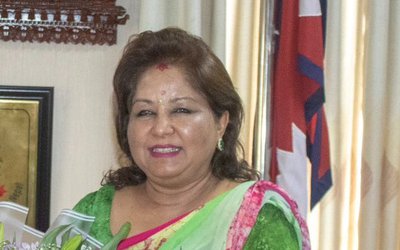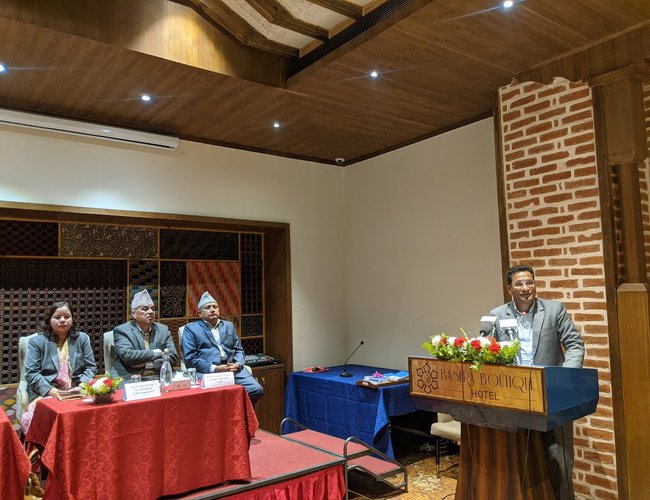
Minister of Energy, Water Resources and Irrigation Shakti Bahadur Basnet unveiled the Response Strategy on Water Resources Management And WASH Services.
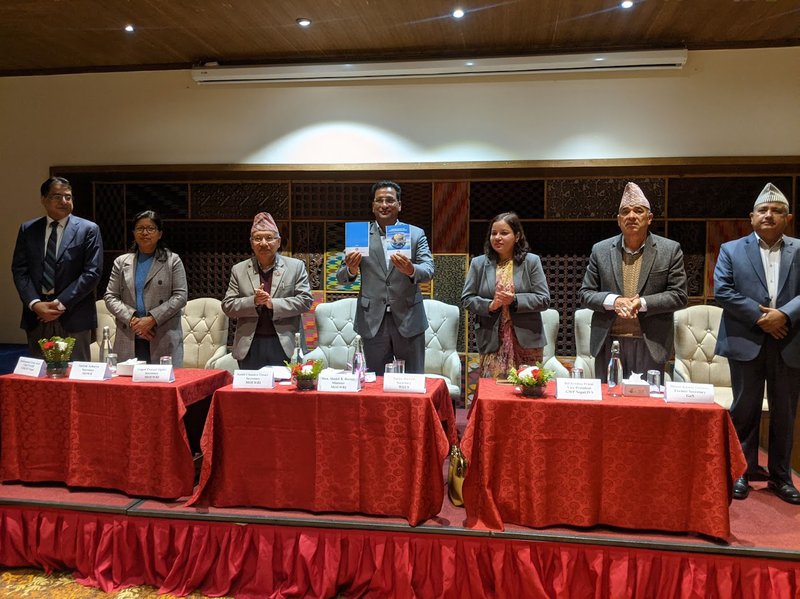
This strategy was prepared by the Water and Energy Commission Secretariat in collaboration with the Ministry of Drinking Water and Jalsrot Vikas Sanstha, a non-governmental organization focused on water issues.
The Nepal Government Water and Energy Commission Secretariat received support from the Global Water Partnership Program-Nepal/Jalsrot Vikas Sanstha in implementing the Water Resource Management component of this program.
In his address at the event, Minister Basnet emphasized that water resources are the most affected by climate change.
Minister Basnet emphasized the importance of accepting the study report on water resource management and implementing its recommendations into policy.
He highlighted the need to prioritize easy management of water, identifying and addressing problems, and taking a comprehensive approach to managing water resources.
Minister Basnet also stressed the significance of integrating legal arrangements related to climate and giving priority to the allocation of budget for the multilateral use of river basins.
The study report, published under the World Water Leadership Program, provides insights into the obstacles and challenges in water resources management.
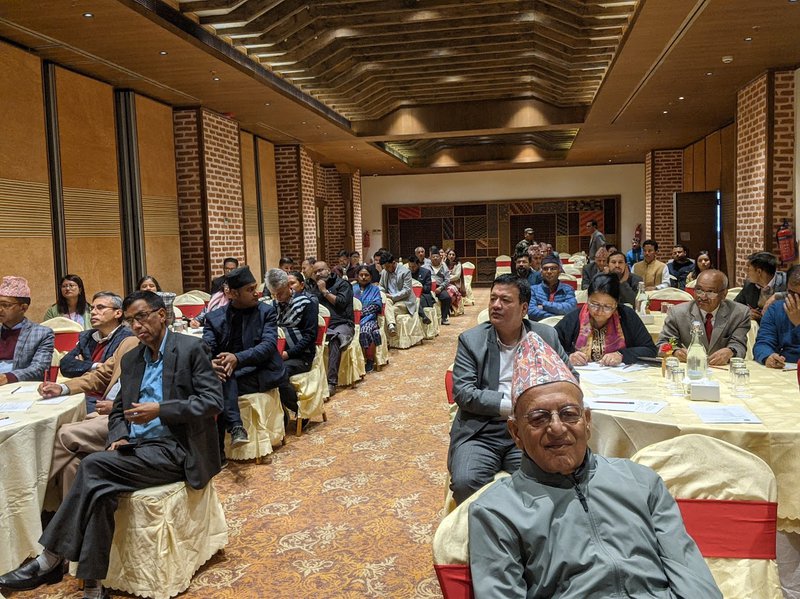
Minister Basnet emphasized the importance of taking water management seriously in order to address the identified issues and make progress. He expressed his satisfaction with the study's focus on integrated water resource management.
He also highlighted the need to prioritize the multilateral use of river basins and allocate budget resources while considering legal and structural concerns. The study report, published under the World Water Leadership Program, identifies obstacles and bottlenecks in water resource management for climate enhancement.
Sushi Chandra Tiwari, Secretary at the Ministry of Energy, Irrigation and Water Resources, mentioned that the approach will assist Nepal in developing new water resource programs in a comprehensive manner considering the effects of climate change.
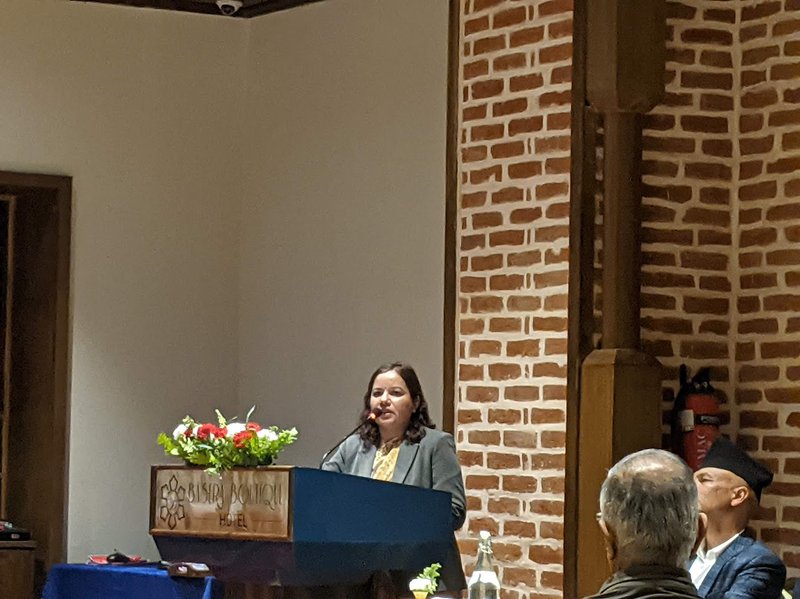
The Acting Secretary of the Ministry of Drinking Water, Meena Shrestha, stated that the strategy was developed through thorough deliberations with the expectation of receiving support for integrated water supply and sanitation systems.
Ifran Akhtar, the head of WASH at UNICEF Nepal's country office, highlighted that the strategy will play a role in reaching the SDG objectives.
Bal Krishna Prasai, Vice President of JVS and former secretary, expressed his delight in contributing to a project aimed at supporting the government of Nepal in the water sector.
Dines Kumar Ghimire, former secretary of Energy, Water Resources and Irrigation, mentioned that the strategy covered various sectors, including basin management, in the context of climate change.
Under the leadership of Sarita Dawadi, secretary of Water and Energy Commission Secretariat (WECS), Dr. Kapil Gnawali, senior divisional hydrologist and GWL Focal point, emphasized the significance of the strategy.
With the participation of numerous stakeholders from various sectors related to water resources, over 1300 stakeholders were consulted in the preparation of the strategy.
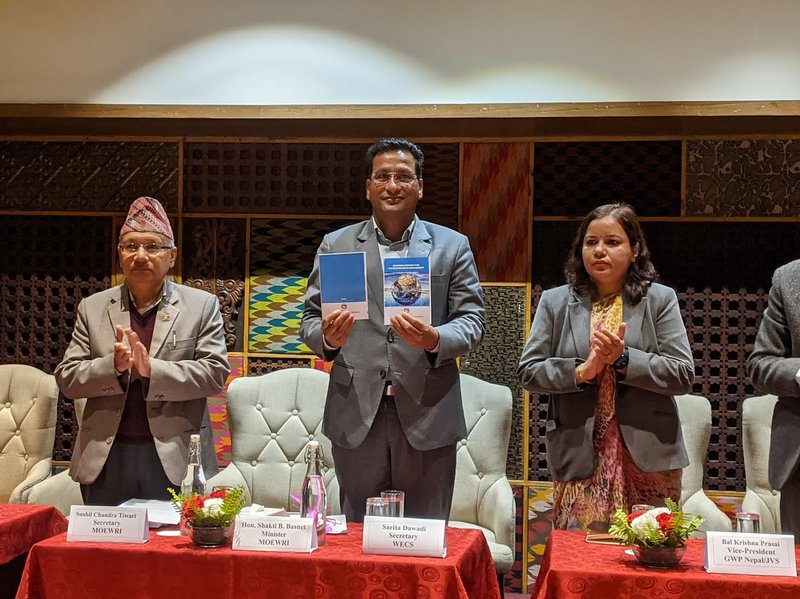
Press Release of the Program
Impact of climate change is increasing day-by-day over the years. Climate change has directly and indirectly adversely affected people's daily life as well as the social and economic sectors. In Nepal, climate change-induced extreme weather events are also having a widespread impact on water resources and WASH (water, sanitation, and hygiene) services. Although Nepal's greenhouse gas emission is negligible, impacts of climate change and its risks remain challenging. In recent years, excessive rainfall in a short period has caused widespread damage to water infrastructure. Generally, water flow in the river is decreasing from Chaitra to Jestha, resulting to only half or one-third of hydropower generation of the installed capacity. Moreover, it is evident that supply of water for drinking, irrigation and other uses is declining. Even if the global temperature rise is maintained within 1.5 degree Celsius as per the Paris Agreement, glaciers of the Himalayan regions will likely melt up to 36% by the end of 21st century. This is a terrible situation. Generally, with the temperature rise,ice melting would increase the river flow by mid-century, and availability of water is predicted to decrease by the end of this century.
To ensure climate-resilient and inclusive management and sustainable utilisation of water resources, the Global Water Leadership Programme has been implemented for the past two years through the facilitation, coordination, and leadership of this Secretariat in collaboration with the Ministry of Water Supply, and with support of the UK government, Global Water Partnership Organization, and the UNICEF. Under this programme, a Response Strategy has been formulated with the active participation of multi-stakeholders engaged in water and climate change to address priority barriers such as the implementation of water policies, institutional coordination, and data and capacity building.
The Government of Nepal has approved this strategyas per its decision (Hon. Minister level) on 22 March 2024 (BS 2080.12.09). Hon.Mr. Shakti Bahadur Basnet, Minister for Energy, Water Resources and Irrigation unveiled theStrategy during a Launching Programme (organised by the Water and Energy Commission Secretariat) on 29 March 2024 (BS 2080.12.16).
This strategy was formulated through relentless efforts of about one and half-year by forming three working groups with the participation of representatives from around 40 institutions involved in water resources management(WRM), WASH services and climate change in Nepal, including government agencies, inter-governmental organizations, local governments, non-governmental organizations, water user associations, and academia. Water stakeholders identified inadequate policy implementation, institutional coordination, and lack of data and need for capacity building as the main barriers to make WRM inclusive and climate-resilient. After identifying and prioritizing the root causes of these barriers, an action plan was developed by selecting doableactivities to minimize the impacts of the root causes of each barrier. Appropriate sub-activities were also selected, and strategies have been proposed for the implementation of those activities.
This Strategy has been prepared with the main objective of promoting climate-resilient and inclusive development of water resources and WASH services, addressing climate vulnerabilities and risks, and exploring opportunities to make water resources environmental-friendly and climate-resilient. The Response Strategy includes 22 strategies and 29 prioritised activities. A total of around NRs. 7 billion has been estimated for the effective implementation of the action plan which is included in the Strategy. It seems possible to mobilize financial resources through internal sources as well as support from friendly nations, multilateral agencies, development partners, and by accessing the climate finance.
This Strategy will, inter alia,:
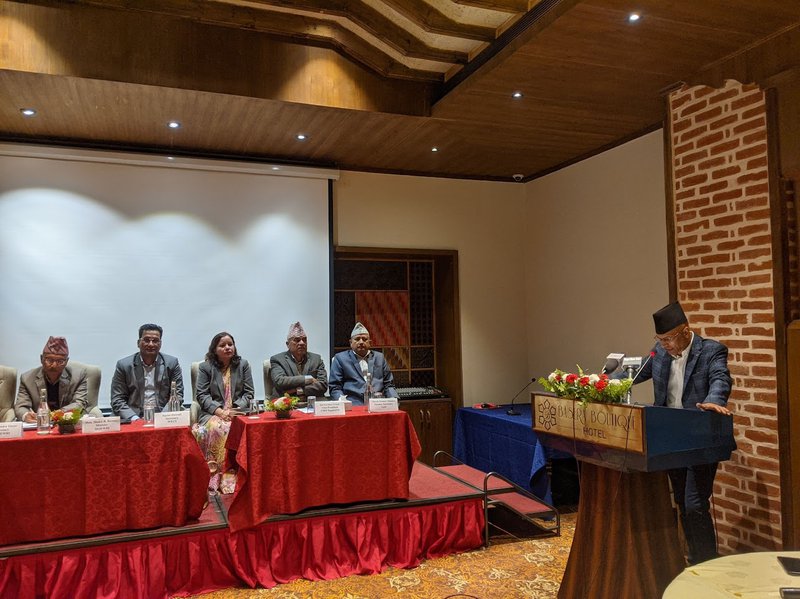
(a) promote dialogue with stakeholders on climate-resilientintegrated water resources management (IWRM) and WASH services;
(b) further promote multi-stakeholder consultative process in formulating policies coherent with the Constitutional provisions, and international commitments &obligations;
(c) contribute to clarify the roles and responsibilities of three tiers of government, along with a coordination mechanism for the development and management of water resources;
(d) adopt IWRM and basin-wise approach as a functional planning tool for climate-resilient and sustainable WRM and WASH services;
(e) emphasize the establishment of River Basin Offices and an institution related to climate change; and
(f) further emphasize the involvement of water agencies and experts in water and climate change negotiations.
Similarly, the Strategy will promote the formulation of a policy on data generation, management and utilisation, designate a central data management body on water resources, and develop a mechanism to inform data users and relevant stakeholders on availability of data and information.
Participation of the Government of Nepal,provincial and local governments, private sector, and the federations of the non-governmental organisations will be ensured to implement the Strategy. Effective implementation of this Strategy is expected to result, inter alia, in:
a. making WRM and WASH services inclusive, gender-responsive, and climate-resilient;
b. promoting multi-purpose and optimum use of water resources, and institutionalising water accounting, allocation, and auditing;
c. reducing climate vulnerabilities and risks, and making the water infrastructure climate-proofed and resilient;
d. institutionalising data collection, management, and utilization; and
e. enhancingcountry capacity to access and mobilize financial resources.
Embracing IWRM and river basin approaches, the Strategy aims to ensure the country's economic and environmental prosperity through sustainable management and utilization of water resources by reducing climate vulnerabilities and risks, and by minimizing excessive effects on water infrastructure. The Strategy is expected to help make water policies "climate-smart" and climate policies "water-inclusive."
This Global Water Leadership Programme is being implemented in 10 countries of Asia and the Africa, including Nepal. Most of the countries have formulated the response strategies. To implement this programme, the Global Water Partnership Nepal/Jalsrot Vikas Sanstha (GWP Nepal/JVS) supported the Government of Nepal, Water and Energy Commission Secretariat in implementing WRM component of this programme.
- The Sentiment Of Monetary Policy Seems Focused On Increasing Eemand: FNCCI President Chandra Prasad Dhakal
- Jul 26, 2024
- Monetary Policy 081/82 Is Making The Economy More Dynamic: Governor Adhikari
- Jul 26, 2024
- Global IME Bank And Shashila Motors Signed Agreement Regarding Electric Vehicle loan
- Jul 26, 2024
- Lok Bahadur Thapa, permanent representative of the UN in New York, was appointed as the Vice President of ECOSOC
- Jul 26, 2024
- Leeladevi Gadtaula Became The First woman Chief Secretary
- Jul 26, 2024






